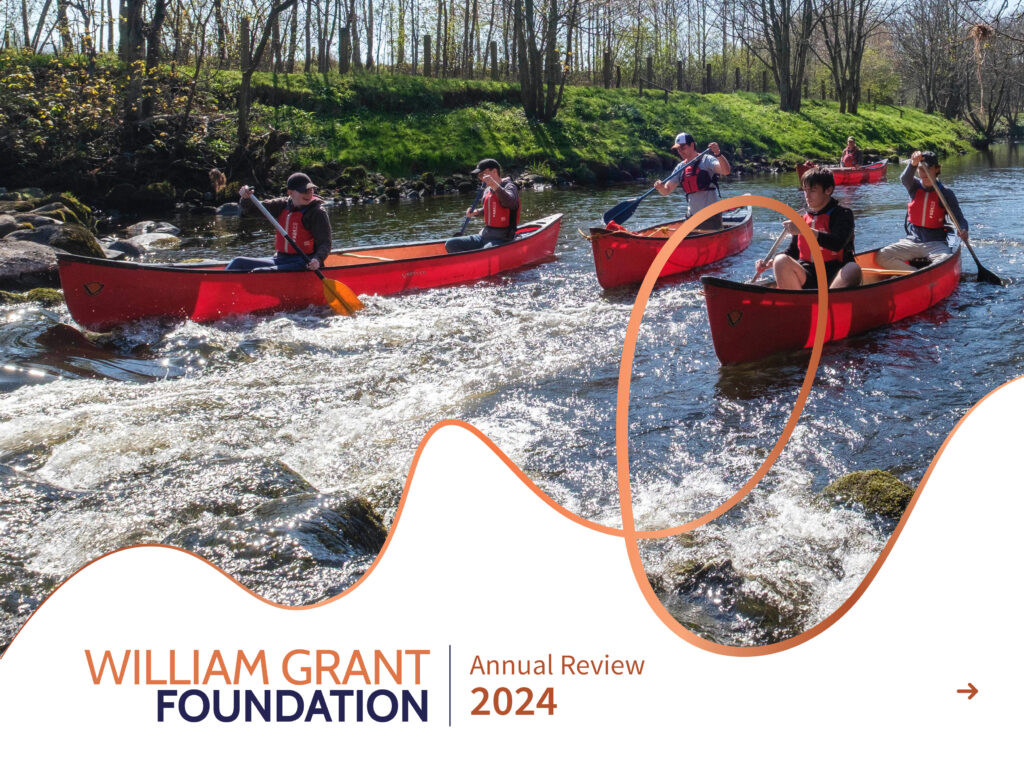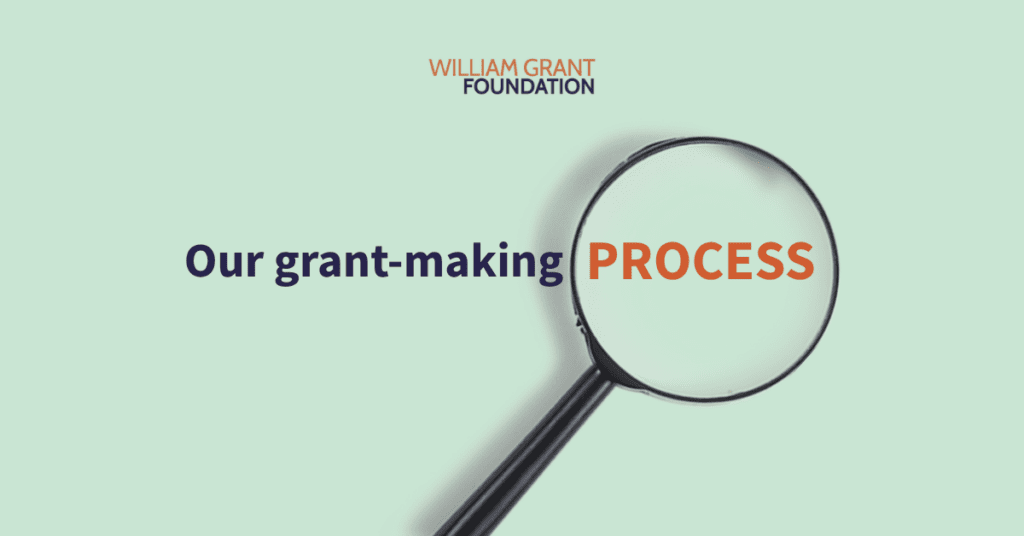The realities of diversifying income
17 June 2025
An exploration of different funding sources for third sector organisations.
Jane Churchill

Finding new sources of funding beyond grants and donations remains a live topic for many third sector organisations. After more than two decades supporting and working alongside charities, social enterprises and community organisations, I’ve seen first-hand the financial pressures that organisations face. And those pressures are only intensifying.
No one-size-fits-all approach
At a recent Foundation Forum*, over 40 funded partners came together to explore new ways of generating funds in the face of these pressures. The discussion offered honest reflections and highlighted that while diversifying income can be an important part of financial resilience, there is no single approach that works for everyone.
Some organisations have successfully developed new income sources that fit their models and missions. One of the Forum presenters, Lorn Healthy Options, shared how they have grown income for their exercise and wellbeing activities from client fees from zero to £80,000, supported by a service model where fees are appropriate and achievable.
Elgin Youth Development Group, who also spoke at the Forum, gave an honest account of how they have optimised use of their existing assets to develop social enterprises that both generate income and provide employment and skills opportunities for young people.
Both approaches were inspiring, but they worked because they were the right fit for those organisations. A key message from each speaker was that what’s right for one is not always right for another.
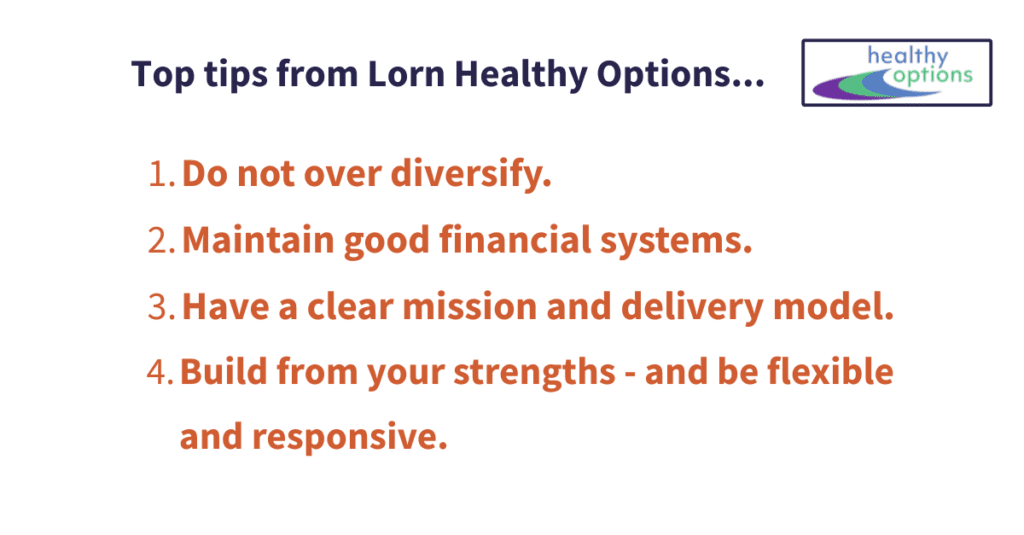
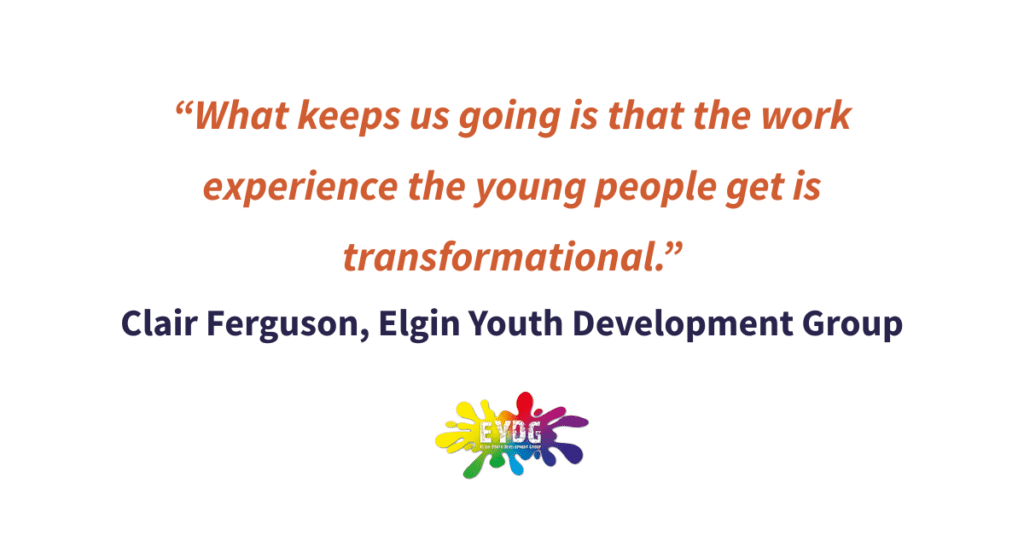
Their approaches have delivered positive results because they align with each organisation’s core purpose, capacity, and the communities they serve – organisations should never force something that isn’t sustainable or doesn’t align with their mission.
Exploring alternative income streams
Income diversification is not always straightforward or suitable. The key is choice and fit, not pressure or following trends.
Charging fees may not be viable where the people a charity works with are already facing financial hardship. The infrastructure and capacity required to develop trading arms or manage new income streams can also be beyond that of many smaller organisations. And for some, grants remain the most appropriate and effective funding route.
Other options that organisations can explore include:
- Volunteer-led fundraising – activities such as the Kiltwalk can bring in valuable funds while deepening community connections.
- Legacy giving – building long-term relationships with supporters who may choose to remember the organisation in their wills.
- High-net-worth individuals – potentially powerful supporters when relationships are built carefully and authentically.
- Gift Aid – often underused, but a helpful way to maximise unrestricted income from donations.
- Individual giving and regular donations – providing steady, predictable income where organisations have the capacity to build and maintain supporter networks.
All of these options require resource, time, and sustained relationship-building. They can play a helpful role, but are not a quick fix.
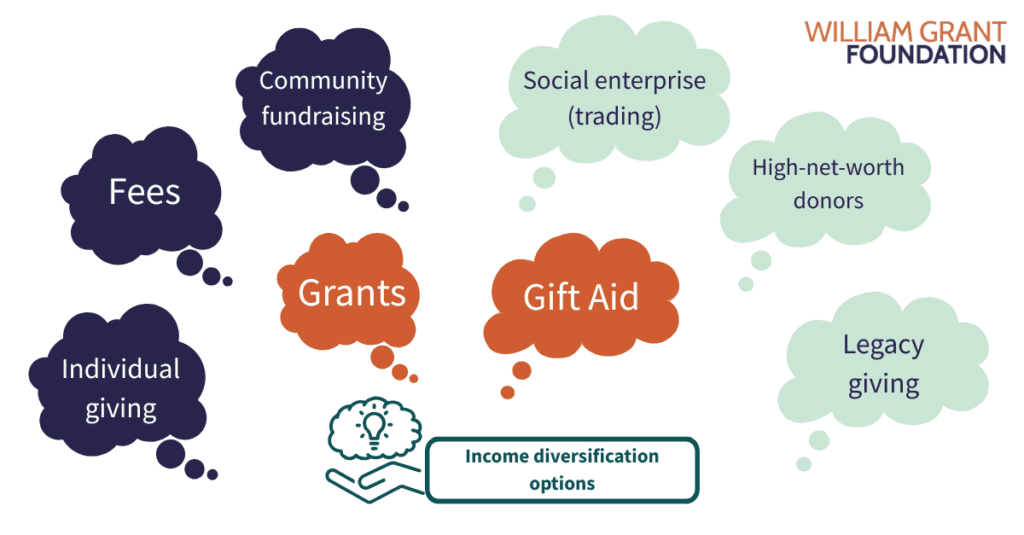
See below for a list of useful links and resources.
Competition and collaboration
Throughout these conversations, a recurring tension emerges for the third sector: the conflict between being encouraged to collaborate while simultaneously being pushed to compete. There is a risk that encouraging organisations to diversify their income pushes them towards marketing themselves – to clients and customers, donors or volunteer fundraisers – over others in their field or community.
Expectations around communications and digital presence can sometimes reward visibility and slick communications over quieter but equally effective work.
Grant-making in a broader landscape
Funders often promote partnership working and sustainability, yet the funding eco-system continues to pit organisations against one another in competition for limited resources, while short-term funding cycles, complex reporting requirements, and expectations to fund work up front often stretch organisations to their limits.
For many organisations, this dynamic adds further strain to an already challenging environment, making development of new income streams, long-term planning and genuine collaboration more difficult.
An open and trusting grant-making approach recognises that one of the most helpful things funders can do is provide stable, flexible, and long-term support, allowing organisations to focus on their work and their communities, collaborate meaningfully, and explore appropriate and sustainable opportunities to secure additional resources to support their mission.
What we’ve learned
Income diversification isn’t possible or appropriate for every organisation – nor should it be treated as an expectation or solution for all. But it can strengthen financial resilience when it is built carefully, in ways that fit with each organisation’s purpose, capacity and context.
Funders can also help by creating spaces for organisations to share learning and experiences of finding new income sources. Having spent this past year with the Foundation, I see even more clearly the value of hearing directly from peers about what has worked (and what hasn’t) and then tailoring this learning for different circumstances.
This kind of shared learning continues to shape my own practice because it opens up thinking, sparks new ideas, and connects us to practical tools and resources.
* Foundation Forums are quarterly online peer learning events for organisations in receipt of funding from the Foundation.
